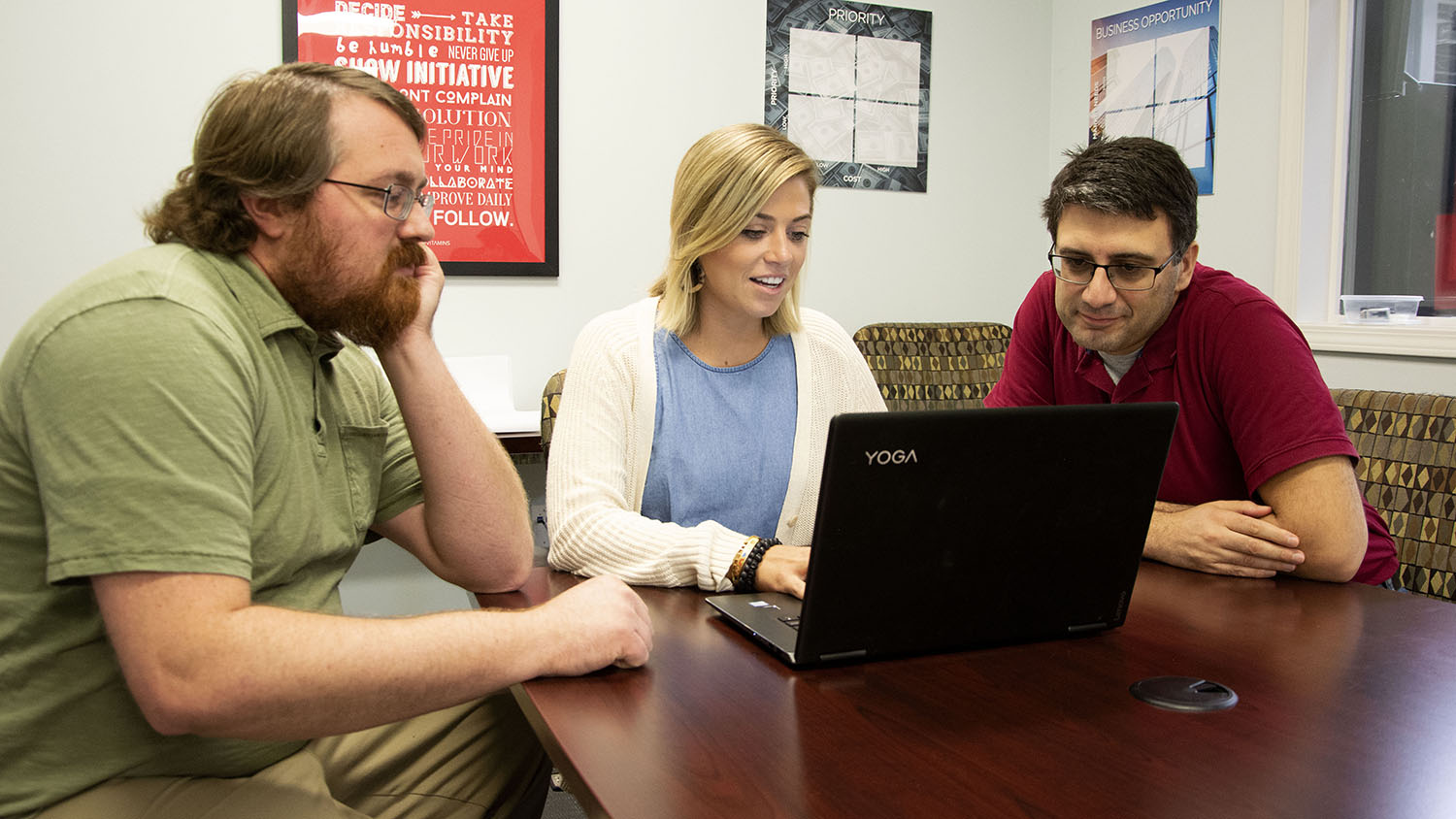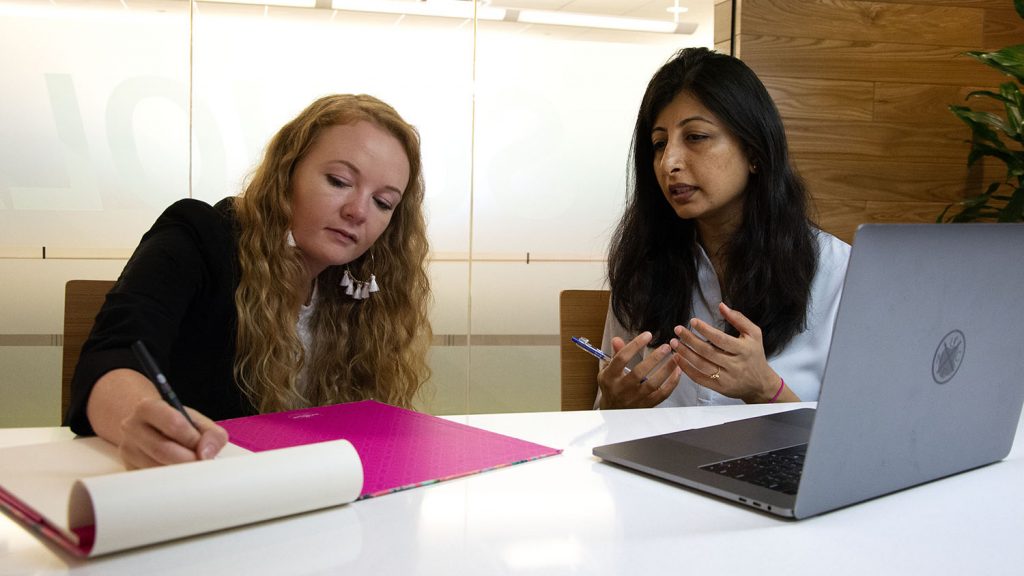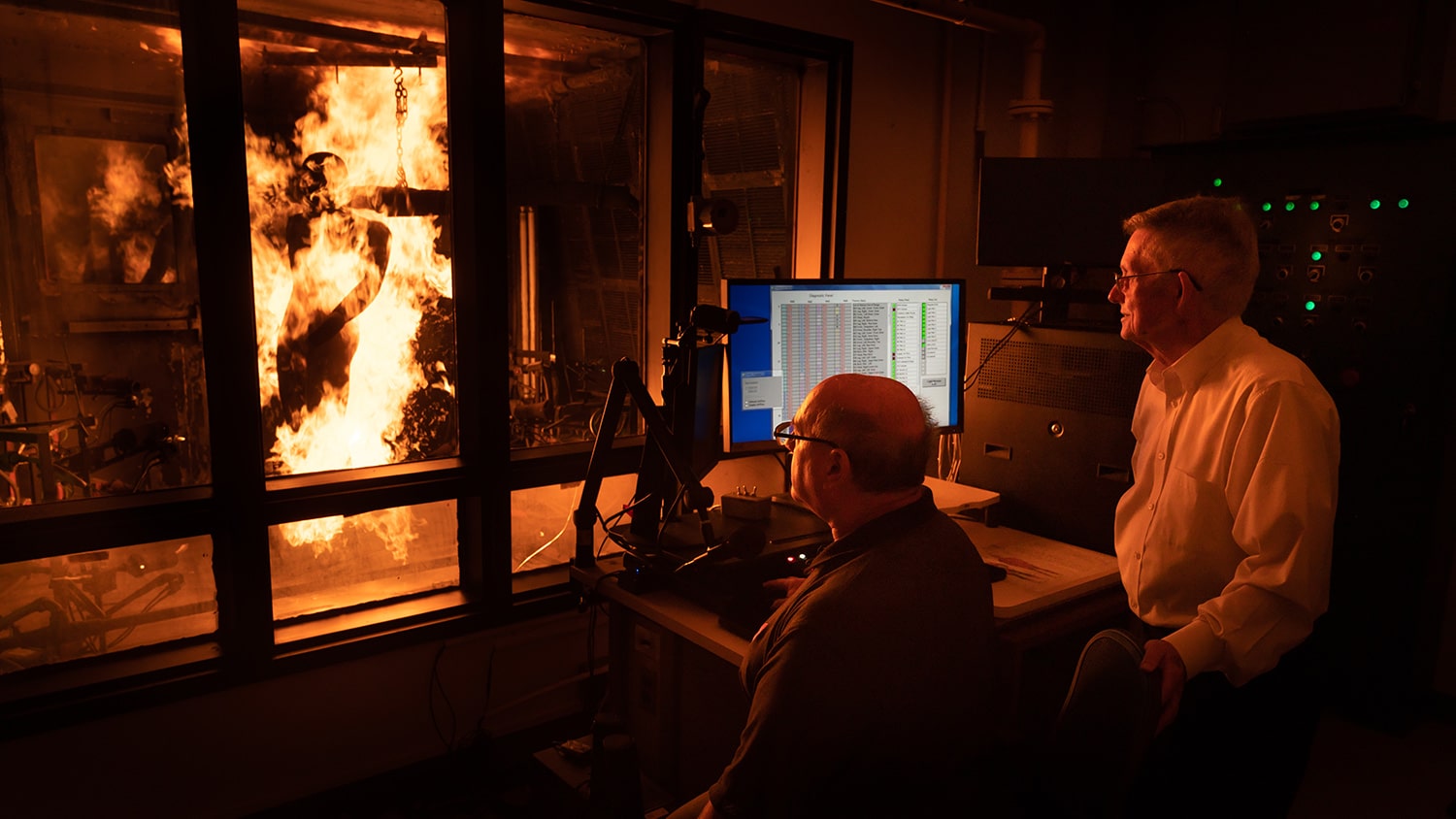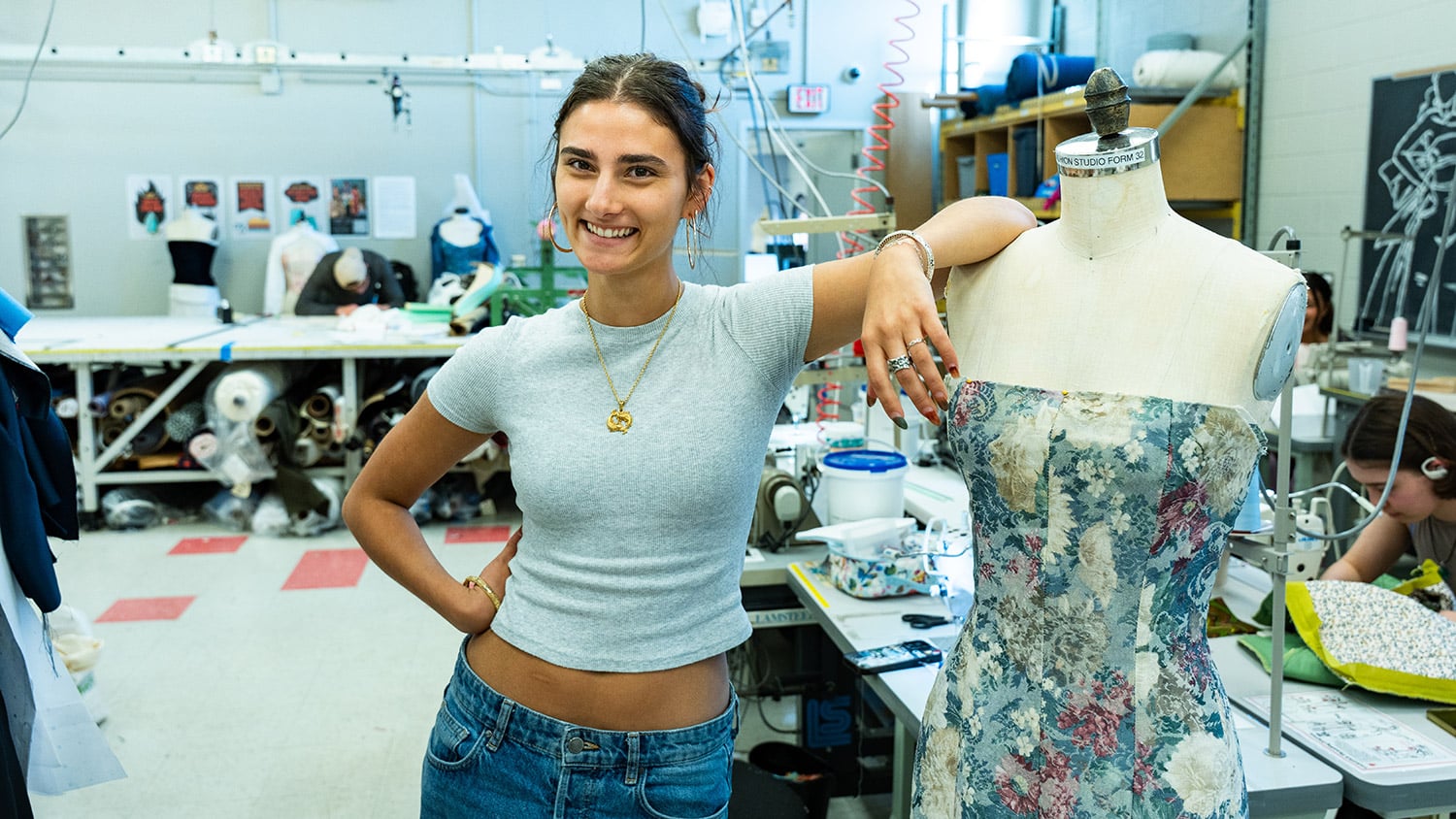Kenan Fellows Take STEM Education to the Next Level
At NC State, an investment in innovative K-12 teachers is an investment in students' success.

Today’s children are future problem-solvers, innovators and groundbreakers. Early exposure to science, technology, engineering and math (STEM) prepares them for the real, complex challenges of our evolving world. Investing in their future success means investing in teachers now.
The Kenan Fellows Program for Teacher Leadership brings together educators across North Carolina for an immersive experience in STEM fields. It’s part of the Kenan Institute on NC State University’s Centennial Campus, which promotes the state’s economic development by creating partnerships between public and private organizations.
Kenan Fellows start their summer at a weeklong summit discussing technology and pedagogy. Then, each teacher spends several weeks outside of the classroom working on a project in a business or a research laboratory. These projects are designed to benefit their host organization while developing STEM curricula for their classrooms. But training teachers offers a long-term return on investment, too.
“In conversations with HR directors, we’re hearing companies want to fill positions with people in their community, but they exhaust that pool. They can’t find enough people to fill positions,” said Elaine Franklin, director of the Kenan Fellows Program. “The businesses we work with know that hosting a Kenan Fellow is an investment.”
“We’re able to help teachers launch,” Franklin added. “Many of them want to stay in the classroom, but they want to have a voice. They want to have networks and venues and connections to lift up their students and education itself.”
Taylor Waters, a fourth grade teacher at B.T. Bullock Elementary School in Lee County, was a 2019-2020 Kenan Fellow. STEM is “wildly important,” she says, but elementary school students could be exposed to it more. If a spark is lit early, students will seek out STEM opportunities in middle and high school. The fellowship gave Waters the opportunity to explore how to get students more interested in STEM and how to strengthen her influence as a teacher.
“I love being in the classroom, but I wanted to expand my reach as a teacher as well,” Waters said. She spent the summer of 2019 at Fidelity Investments, where she saw how the company trains its employees, worked in user experience design and conducted empathy interviews to create an online financial literacy guide for Fidelity’s employees.
That fall, she took all of that knowledge and wisdom and gave it back to her fourth graders, incorporating financial literacy lessons into her math and social studies classes.
“I have students who are incredibly affluent and students who are in poverty,” Waters said. “They both have limited understanding of the value of a dollar,” Waters said.

One day, Waters got a stack of grocery flyers from Food Lion to show her students sale prices and the cost of different foods. Her class made a budget for Thanksgiving meals. Soon, she and her students were building a school improvement budget to present to Bullock Elementary’s leadership. Seeing the real-world examples enthralled the students, and they asked to do more complicated math, like using percentages to determine discounted prices. Waters’ class even talked about credit and debit.
“Parents called me asking why their kids were asking about their credit score,” she said with a laugh. “At least they’re starting conversations.”
But Waters’ growth as a teacher went beyond the classroom. Fidelity Investments has a “customer-obsessed” focus, she said, and she’s interpreted that to become “student-obsessed” in her community. Any meeting she leads begins with asking “why?” Why is her team discussing this, and how does it help students? Since the summer, she’s volunteered to review curricula in Lee County and participated in a professional development program examining student engagement.
“This experience has given me a lot of confidence to sit at the table and contribute my ideas,” Waters said. “It’s given me the confidence to take on new leadership roles within the county as a teacher and in my community.”
This experience has given me a lot of confidence to sit at the table and contribute my ideas.
Caroline Olson, a special education teacher at Broughton High School in Wake County, echoed Waters’ zeal for the fellowship program. She was also a 2019-2020 Kenan Fellow, and she created a 49-page roadmap to help Cornerstone Building Brands employ individuals with intellectual disabilities. During her internship, she visited four Cornerstone Building Brands manufacturing facilities in North Carolina, South Carolina and Virginia to get a close look at what types of jobs her students could do.
“People with intellectual disabilities have a vast array of skills and abilities,” Olson said. “There’s no one-size-fits-all. There’s an obvious need for people with disabilities to have meaningful employment, and they really do great things for companies.”
It’s one thing to persuade a company to commit to hiring people with disabilities, but figuring out the next steps is a different challenge. Olson examined Cornerstone’s recruitment, retention and hiring barriers with human resources. Her roadmap compiles numerous resources, including laws concerning disability employment as well as contact information for agencies near different Cornerstone locations.
“I didn’t sleep very much creating this because I loved it so much,” Olson said. “It’s so meaningful.”
“This experience allowed me the opportunity to research something so thoroughly that’s important to my students,” Olson added. “I can take that back to them and work on their employability, showing them, here’s what companies look for, here’s how to have a great resume.”
I didn’t sleep very much creating this because I loved it so much. It’s so meaningful.
And Cornerstone Building Brands is moving forward with an inclusive hiring program.
“We are always looking for good people in the company,” said Lee Clark-Sellers, the company’s chief innovation officer. “One of the biggest issues is finding people to work in the manufacturing industry. Manufacturing requires all types of individuals: supervisors, assembly workers, engineers, chemists, physicists. There’s all types of jobs and growth opportunities.”
Cornerstone Building Brands has been working with the Kenan Fellows Program for nearly a decade. Having teachers in the workplace has been invaluable, as they bring fresh eyes and new ideas to various challenges. That perspective, Clark-Sellers said, is golden.
“I wish this program were nationwide,” Clark-Sellers said. “We have facilities across the country, and I really think they’re missing out, not having this opportunity.”
Clark-Sellers also recognizes the investment Cornerstone Building Brands is making in its future. If a teacher can get students interested in one of the numerous subsets of manufacturing, the employment pool will be even stronger once those students are ready to enter the workforce.
“We’re training the trainer,” Clark-Sellers said. “I think we can get so much more benefit of working with faculty and helping them understand what types of jobs and what types of things we’re looking for in the industry.”
For Olson, being a Kenan Fellow fueled her passion for education even further. It was a crucial part of developing her confidence in leadership.
“The Kenan Fellows Program is so life-changing because of how it changes your view in teaching and builds your confidence inside and out of your classroom,” Olson said.
- Categories:


